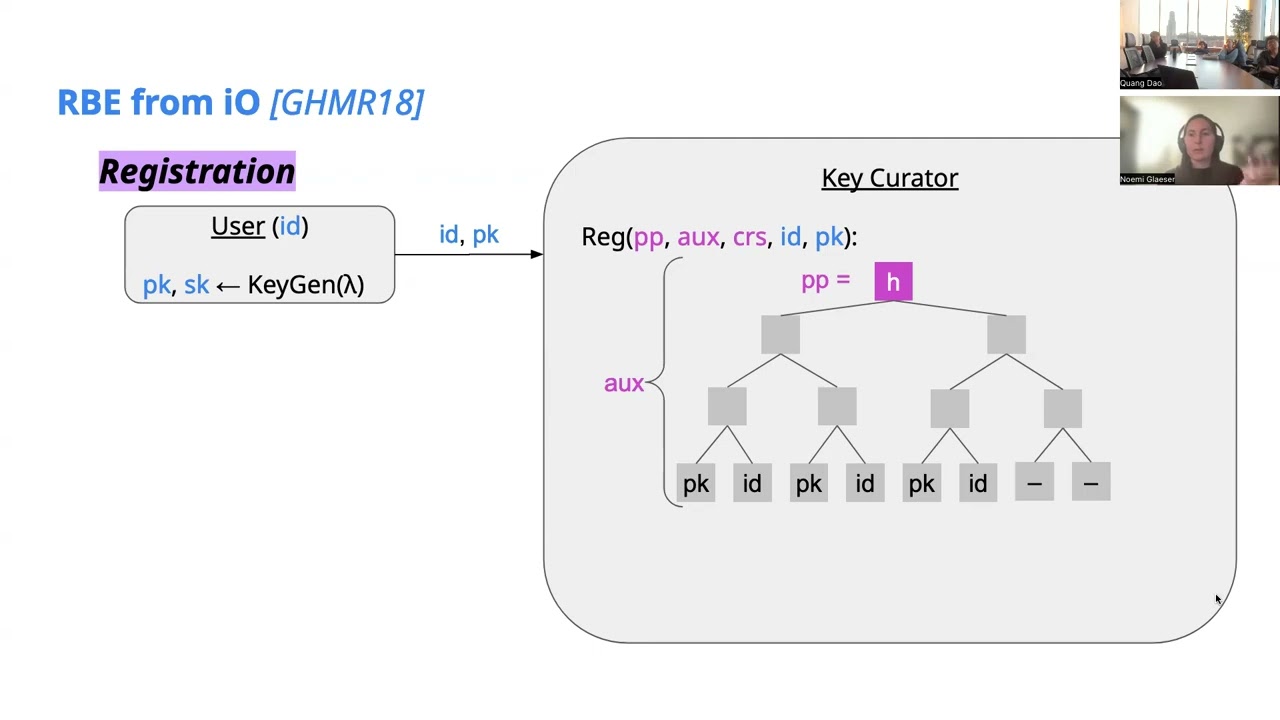Welcome to the resource topic for 2022/1505
Title:
Efficient Registration-Based Encryption
Authors: Noemi Glaeser, Dimitris Kolonelos, Giulio Malavolta, Ahmadreza Rahimi
Abstract:Registration-based encryption (RBE) was recently introduced as an alternative to identity-based encryption (IBE), to resolve the key-escrow problem: In RBE, the trusted authority is substituted with a weaker entity, called the key curator, who has no knowledge of any secret key. Users generate keys on their own and then publicly “register” their identities and their corresponding public keys to the key curator. RBE is a promising alternative to IBE, retaining many of its advantages while removing the key-escrow problem, the major drawback of IBE. Unfortunately, all existing constructions of RBE use cryptographic schemes in a non black-box way, which makes them prohibitively expensive. It has been estimated that the size of an RBE ciphertext would be in the order of terabytes (though no RBE has even been implemented).
In this work, we propose a new approach to construct RBE, from well-studied assumptions in bilinear groups. Our scheme is black-box, and it is concretely highly efficient—a ciphertext is 866 bytes. To substantiate this claim, we implemented a prototype of our scheme, and we show that it scales to “millions of users”. The public parameters of the scheme are in the order of kilobytes. The most expensive operation (registration) takes a handful of seconds, whereas the encryption and decryption runtimes are in the order of milliseconds. This is the first-ever implementation of an RBE scheme and demonstrates that the practical deployment of RBE is already possible with today’s hardware.
ePrint: https://eprint.iacr.org/2022/1505
See all topics related to this paper.
Feel free to post resources that are related to this paper below.
Example resources include: implementations, explanation materials, talks, slides, links to previous discussions on other websites.
For more information, see the rules for Resource Topics .
